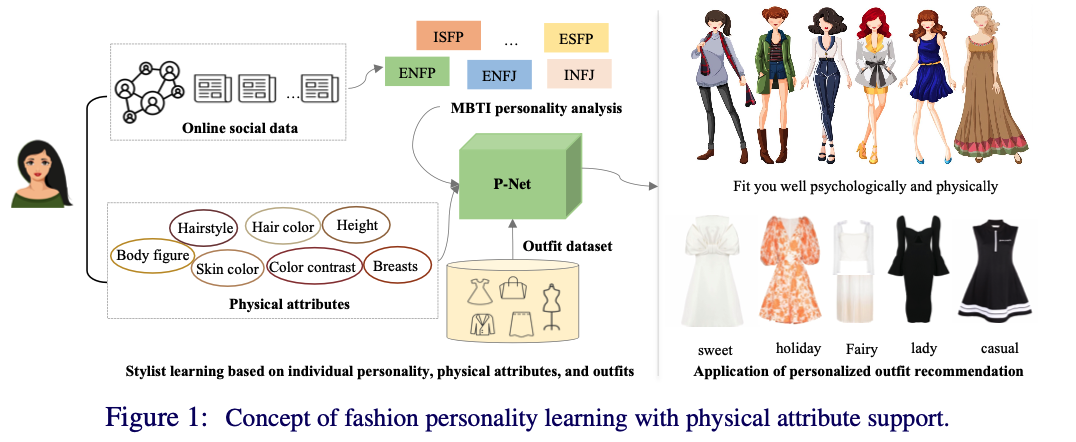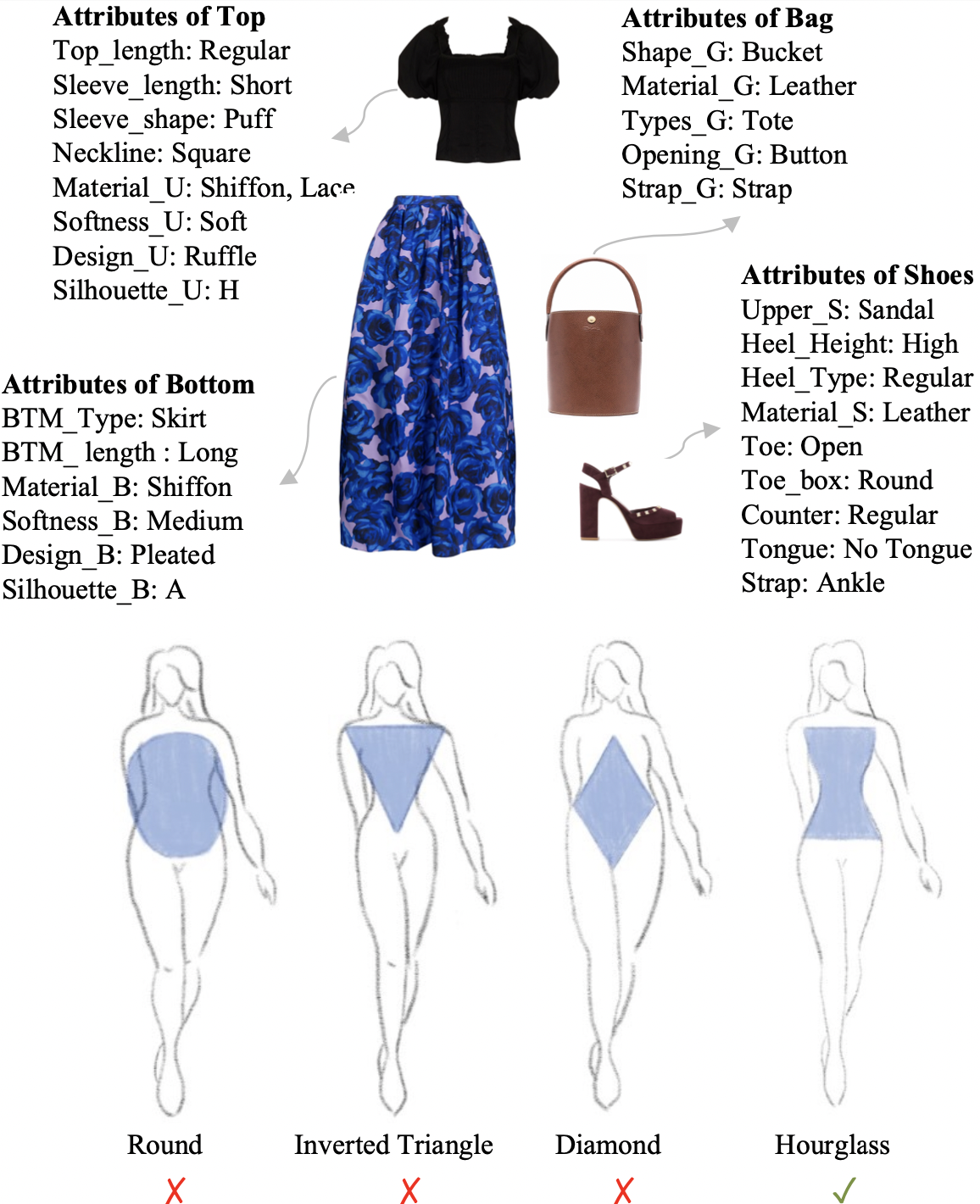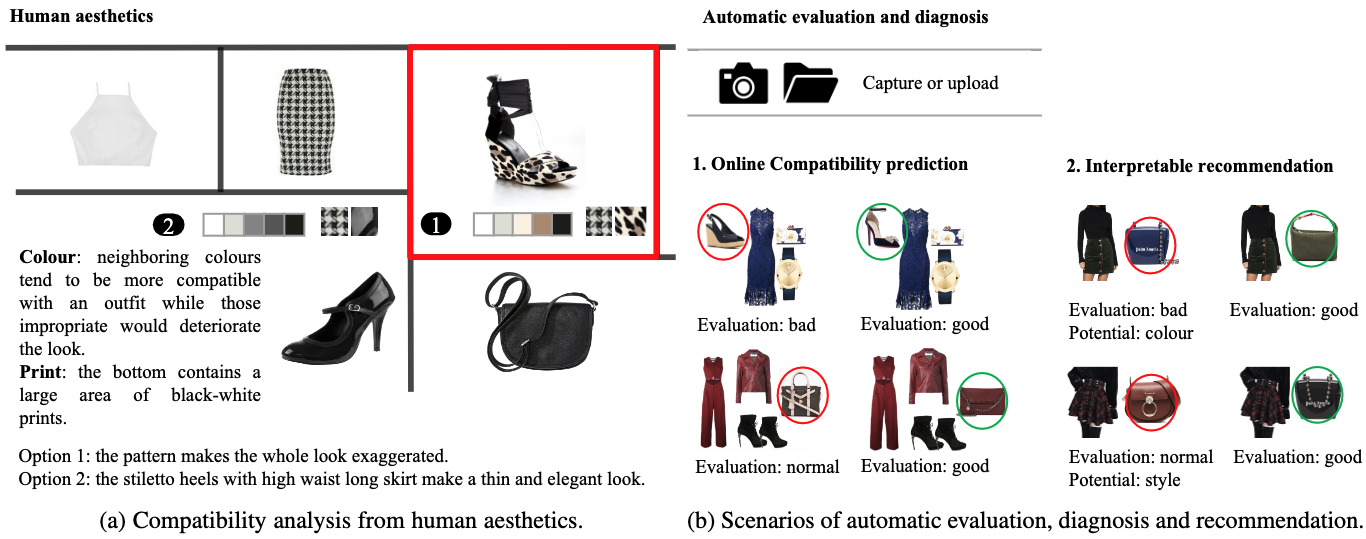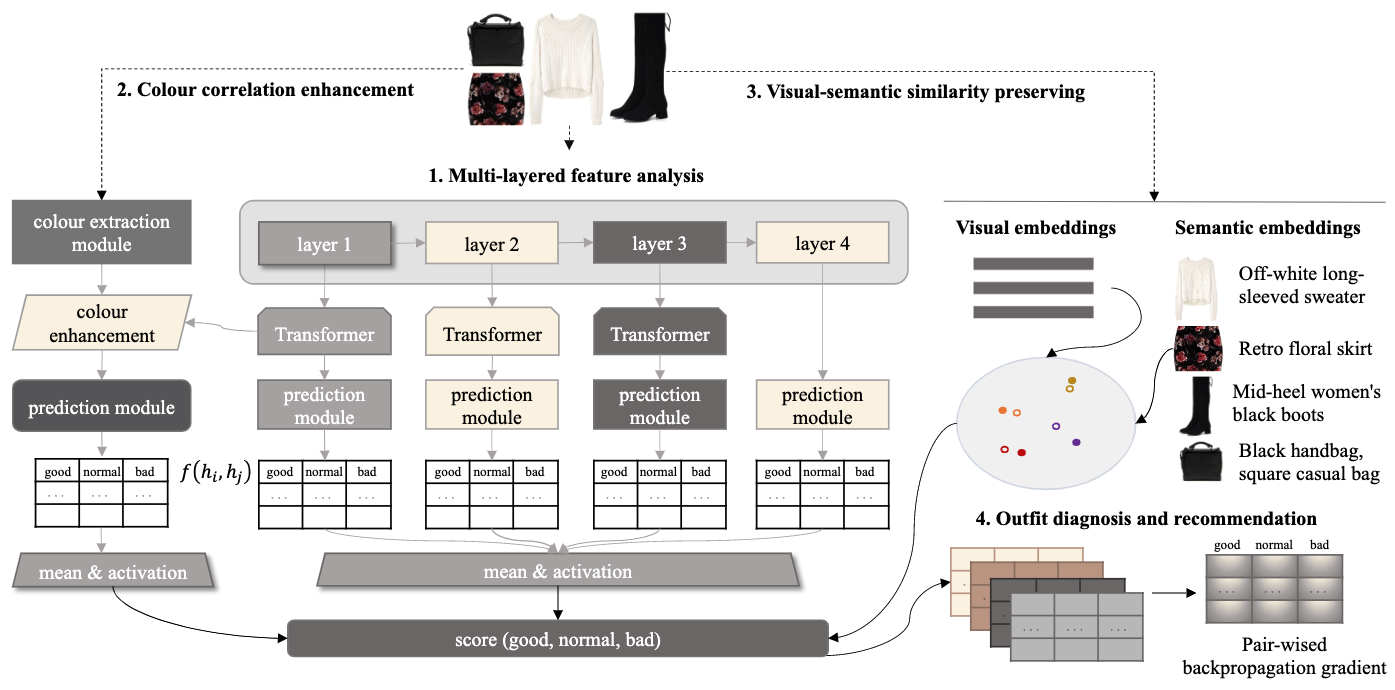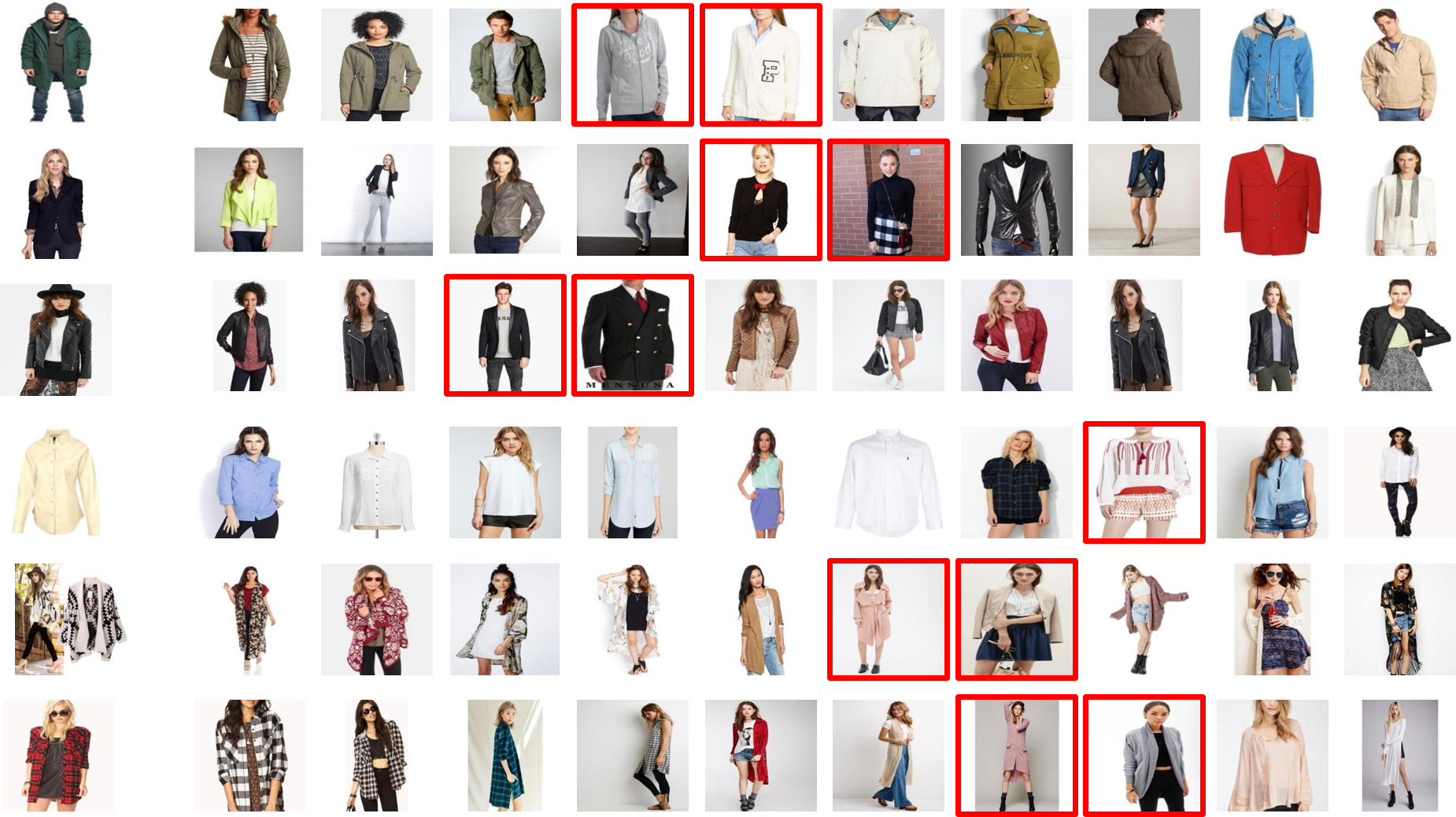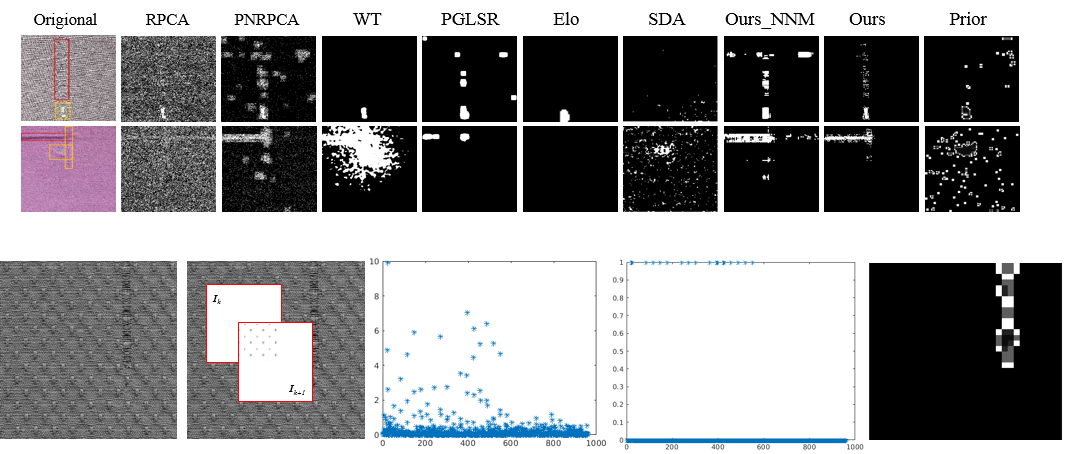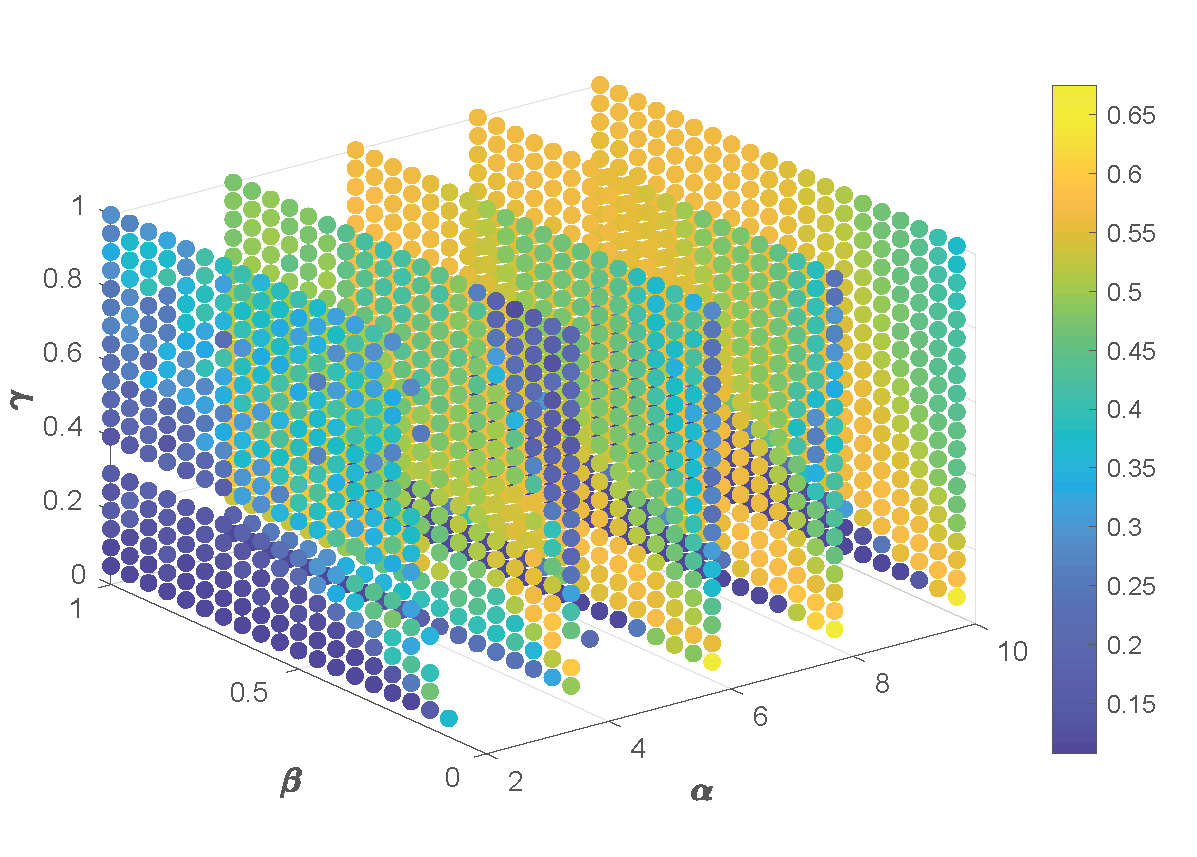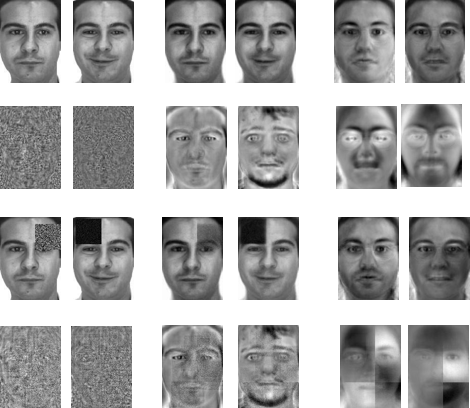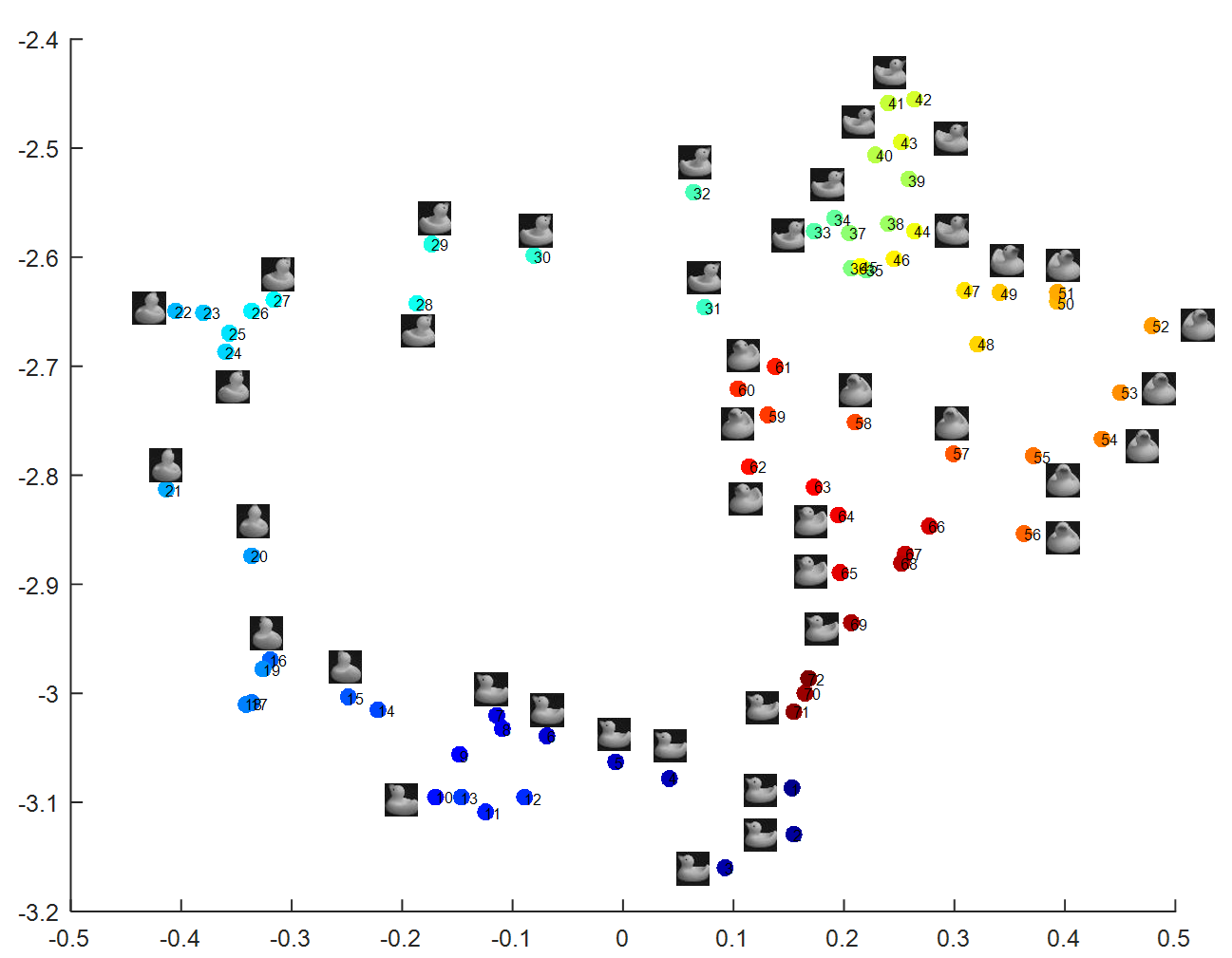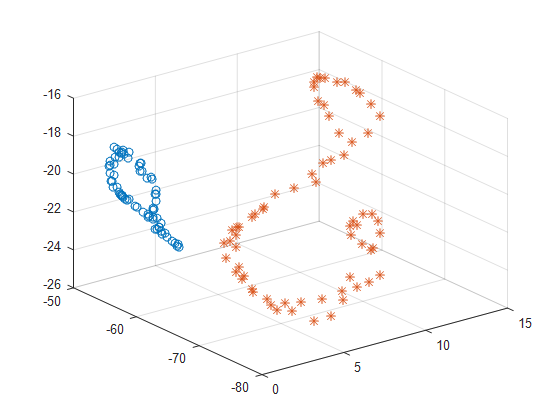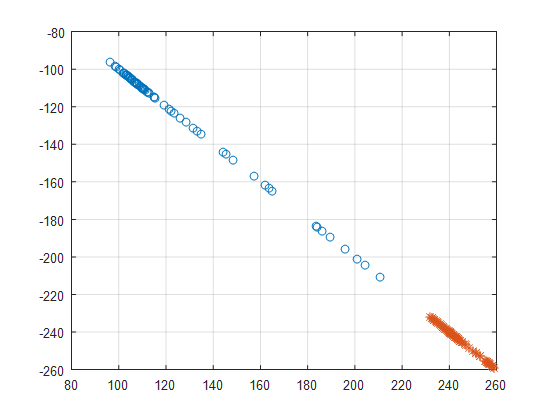Publications
Working papers
[1] D. Mo, D. Souza, X. Zou, W. Wong, M. Deisenroth. "Fashion brand analysis: from classification to identity
fuzziness learning."
[2] D. Mo, D. Souza, X. Zou, W. Wong, M. Deisenroth. "Exploring Gaussian Process Models for Advanced Textual-Visual Understanding: An Empirical Study on Fashion Design."
[3] D. Mo D. Souza, X. Zou, F. Pfaff, W. Wong, M. Deisenroth. "AI in Branding Fashion Design: Learning Historical Characteristics for Innovative Generation."
Selected Publications
[1] L. Shuai, D. Mo and W. Wong. "REB: Reducing biases in representation for industrial anomaly detection." Knowledge-Based Systems 290 (2024): 111563. [Code]
[2] D. Mo, X. Zou, and W. Wong. "Super stylist: personalized fashion recommendation via deep personality learning", The British Machine Vision Conference (BMVC) 2023. [Dataset]
[3] D. Mo, Z. Lai, J. Zhou, et al. "Scatter matrix decomposition for jointly sparse learning[J]". Pattern Recognition, 2023, 140: 109485.
[4] D. Mo, X. Zou, and W. Wong. "Towards private stylists via personalized compatibility learning", Expert Systems with Applications (2023): 119632.
[5] D. Mo, X. Zou, and W. Wong. "Neural stylist: Towards online styling service[J]", Expert Systems with Applications, 2022: 117333.
[6] D. Mo, W. Wong, Z. Lai. "Weighted double low-rank decomposition with application to fabric defect detection[J]", IEEE Transactions on Automation Science and Engineering 2020, (18.3): 1170-1190.
[7] D. Mo, X. Liu, Y. Ge and W. Wong. "Concentrated hashing with neighborhood embedding for image retrieval and classification[J]", International Journal of Machine Learning and Cybernetics, 2022, 13(6): 1571-1587.
[8] D. Mo, Z. Lai, W. Wong. "Jointly sparse locality regression for feature extraction[J]", IEEE Transactions on Multimedia, 2019, 22(11): 2873-2888.
[9] D. Mo, and Z. Lai. "Robust jointly sparse regression with generalized orthogonal learning for image feature selection[J]", Pattern Recognition, 2019, 93: 164-178.
[10] D. Mo, Z. Lai, and W. Wong. "Locally joint sparse marginal embedding for feature extraction[J]", IEEE Transactions on Multimedia, 2019, 21(12): 3038-3052. [Code]
[11] Z. Lai, D. Mo, et al. "Robust discriminant regression for feature extraction[J]", IEEE Transactions on Cybernetics, 2017, 48(8): 2472-2484.
[12] Z. Lai, D. Mo, Wen J, et al. "Generalized robust regression for jointly sparse subspace learning[J]". IEEE Transactions on Circuits and Systems for Video Technology, 2018, 29(3): 756-772.
2019
[1] Jointly Sparse Locality Regression for Feature Extraction.
Dongmei Mo, Zhihui Lai, Waikeung Wong, Xizhao Wang.
IEEE Transactions on Multimedia (Accepted 2019).
[2] Robust Jointly Sparse Regression with Generalized Orthogonal Learning for Image Feature Selection.
Dongmei Mo, and Zhihui Lai.
Pattern Recognition 93 (2019): 164-178.
[3] Locally Joint Sparse Marginal Embedding for Feature Extraction.
Dongmei Mo, Zhihui Lai, and WaiKeung Wong.
IEEE Transactions on Multimedia (Accepted 2019).
2018
[4] Generalized Robust Regression for Jointly Sparse Subspace Learning.
Zhihui Lai,
Dongmei Mo, et al.
IEEE Transactions on Circuits and Systems for Video Technology 29, no. 3 (2018): 756-772.
[5] Robust Jointly Sparse Embedding for Dimensionality Reduction.
Zhihui Lai, Yudong Chen, Dongmei Mo, Jiajun Wen, and Heng Kong.
Neurocomputing 314 (2018): 30-38.
[6] Jointly Sparse Reconstructed Regression Learning.
Dongmei Mo, Zhihui Lai, and Heng Kong.
In Chinese Conference on Pattern Recognition and Computer Vision (PRCV), pp. 597-609. Springer, Cham, 2018.
[7] Robust jointly sparse regression and its applications.
Dongmei Mo, Zhihui Lai, and Yuyang Meng.
Journal of Ambient Intelligence and Humanized Computing 9, no. 6 (2018): 1797-1807.
[8] Robust Feature Extraction for Material Image Retrieval in Fashion Accessory Management.
Meng, Yuyang, Dongmei Mo, Xiaotang Guo, Yan Cui, Jiajun Wen, and Wai Keung Wong.
In International Conference on Artificial Intelligence on Textile and Apparel, pp. 299-305. Springer, Cham, 2018.
[9] Sparse Discriminant Principle Component Analysis.
Zhihui Lai, Mangqi Chen, Dongmei Mo, Xingxing Zou, and Heng Kong.
In International Conference on Artificial Intelligence on Textile and Apparel, pp. 111-119. Springer, Cham, 2018.
[10] Fashion Meets AI Technology.
Xingxing Zou, Wai Keung Wong, and Dongmei Mo.
In International Conference on Artificial Intelligence on Textile and Apparel, pp. 111-119. Springer, Cham, 2018.
2017
[11] Robust Discriminant Regression for Feature Extraction.
Zhihui Lai,
Dongmei Mo, et al.
IEEE transactions on Cybernetics 48, no. 8 (2017): 2472-2484.
[12] Robust jointly sparse regression for image feature selection.
Dongmei Mo, and Zhihui Lai.
In 2017 4th IAPR Asian Conference on Pattern Recognition (ACPR), pp. 477-482. IEEE, 2017.
Contact
Address: The Hong Kong Polytechnic University
Hung Hom, Kowloon, Hong Kong.
Email: dongmei.mo.at.connect.polyu.hk
Linkedin
Google Scholar
